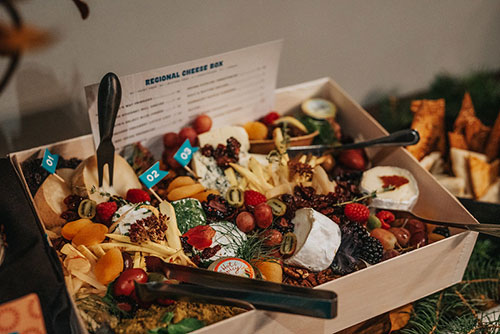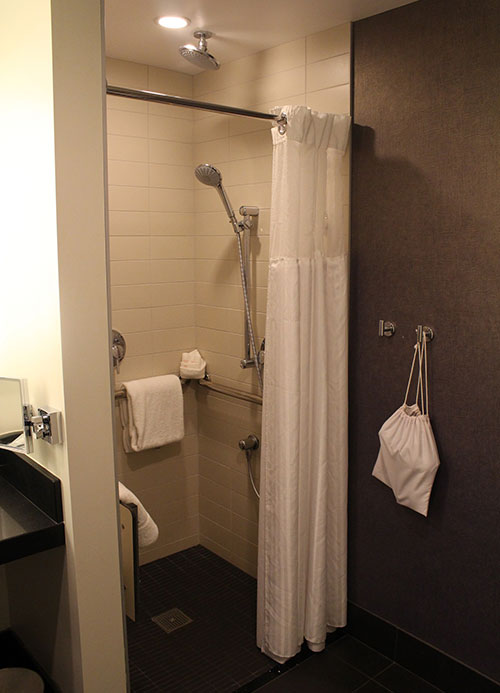The world we live in is more environmentally and socially conscious than ever before. One way to create a memorable event for your guests is to do your part to be more conscientious (for the planet and your attendees). A focus on sustainability can emphasize the host’s push to leave the planet better than they found it.
In addition to sustainability, accessibility is the other big “ility” that should also be considered. When planning an event, hosts should ensure that every attendee can participate and engage to the fullest. In a world where those with different needs than others often get overlooked, accessibility and an open mind are a win-win in making all guests feel welcome.
SUSTAINABILITY
If you’re working with your venue for catering, there are a few steps you can take to make your event as sustainable as possible. Start by simply asking what that location’s sustainability practices are. You’ll be able to find out if being green is something that location deems high priority.
When planning your menu, keep food waste in mind. The U.S. Department of Agriculture estimates that 30-40% of our food supply is wasted, so every little bit helps! If available, opt for biodegradable dishes and cutlery, such as those from Green Paper Products, Repurpose Compostables, or Better than Bamboo.
Lastly, if you’ve chosen a venue other than a hotel, suggest to your attendees that they try to be conscientious when looking for a place to stay. Some hotels will keep it simple and list their sustainability measures on their website. Marriott hotels go as far as to list the carbon and water footprints of their locations. For example, Sheraton Bloomington Hotel lists a carbon footprint of 72.61 kilograms per room, per night, and a water footprint of 572.82 liters per room, per night.  Food from Chowgirls Killer Catering.
Food from Chowgirls Killer Catering.
Other hotels will go the extra mile and proudly display their LEED certification, like Radisson Blu Mall of America. LEED is the most widely used green building rating system in the world. The LEED certification is globally recognized as a symbol for buildings that exude sustainable practices.
Another easy way to be sustainable is to support local restaurants and farmers. Following the pandemic, there was a push to support small and, more importantly, support local. Doing so creates an opportunity for hosts to show appreciation of whatever city they’re in and gives guests the opportunity to feel good about the food they’re eating. In Minnesota, for example, local companies like Chowgirls Killer Catering and Apples 2 Apples Catering have sustainable practices and work with local providers to create fun seasonal menus to make your guests go back for seconds (and thirds!).
 Accessible shower at Radisson Blu Mall of America. ACCESSIBILITY
Accessible shower at Radisson Blu Mall of America. ACCESSIBILITY
Switching gears from ecological sustainability to social sustainability, the key themes are inclusivity, equity, and accessibility. It involves working to put people first and promoting the inclusion of others. As they say, a little kindness goes a long way!
Adding small opportunities to be inclusive will ensure that all guests can enjoy their time at a meeting or event. One simple step to take is to leave a space on RSVPs for accommodation requests. Following that, be aware of any attendees with hearing needs who may require live captions or an interpreter, or if there’s someone who needs to be closer to a presentation to see. Consider your seating. Will there be people with wheelchairs in attendance? Is there space at tables for easy access? It’s small things like these that can be overlooked and lead to a guest feeling alienated.
Venues will often list their accessibility features on their website. For example, Courtyard Bloomington by Mall of America lists elevators, accessible entrances to the hotel itself, business center, fitness center, meeting spaces, and restaurant, and the allowance of service animals, among others. Radisson Blu Mall of America offers automatic doors, elevators, the allowance of guide dogs, large-print menus, raised numbers and braille on elevator buttons, and more.
When it comes to the menu, try incorporating customizable dishes. With large events, it can be difficult to account for every guest’s dietary restrictions. Hosting a customizable food option allows everyone to have a full meal. Options could include build-your-own taco bowls, build-your-own nachos, or a mac and cheese/pasta bar where guests can choose a base, sauce, and toppings.
A truly memorable event is one that does good by its attendees—and keeps their best interests (and needs) top of mind. Taking the time to consider your impact on the planet and your guests will surely leave your meeting or event a step above the rest.
